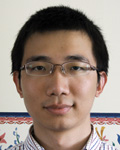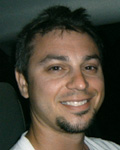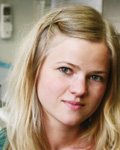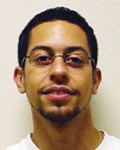
Most children learn the basic proscriptions not to lie, cheat or steal by the time they enter primary school. Scientists and engineers, however, face a host of more complex ethical and practical challenges, beginning with the choice of a career track: defense or civilian, academic or industrial, pure or applied.
Everyone knows the basic moral code of scientific and engineering integrity: Don’t make up your data, assess your results objectively and always give credit where credit is due. But the laboratory is not an island, and pressures from employers and funding institutions can blur the ethical boundaries involved in any research track, no matter how removed it may seem from competing interests.
For some people, pursuing an ethical career means staying out of the military-industrial complex, refusing to work in weapons research and/or engaging in environmental research. For others, solving technological problems in defense and homeland security is the highest possible calling. Still others are happy to pursue theoretical studies that have little immediate applications, finding satisfaction in expanding the scientific body of knowledge.
Young Professional RoundtableNo single career path is right for everyone. To gain various perspectives, we asked five young professionals in diverse specialties and from different geographical areas to share their insights on what an ethical career means to them. Michelle Xu
University of Toronto Michelle Xu invented a plasmonic waveguide to be used in cancer-detecting devices, and she is in the process of patenting it. She has also studied integrated plasmonic sensors with faculty members from the engineering and chemistry departments. On the question of basic versus applied research, Xu believes that both are part of the same feedback model: Applied science allows new technologies to be invented, and, when a problem occurs, basic research is needed to fix it. Because we do not yet understand all of the basic sciences, many technologies come with unintended consequences or problems for which we have no solutions, Xu says. Xu urges scientists to “slow down” and think about the potential consequences of their work, whether it be genetically modified groceries, chemically loaded household products or pesticides that are toxic to the environment. “The question to ask ourselves is: Are we curing cancers? Or, are we creating them?” she says. “We are committing suicide by applying science when we do not have an understanding of its long-term effects.” |
According to Stuart Parkinson, executive director of Scientists for Global Responsibility (SGR) in Kent, England, researchers are increasingly accepting the notion that “social responsibility” goes beyond the narrow scope of professional ethics and includes wider obligations to society at large. “We encourage scientists from the start of their career to educate themselves about the wider context of the discipline in which they work, and gain a clearer understanding of how their work can be used for good or for ill,” he says. “From this perspective, they can make informed choices.”
Many people associate scientific ethics with biomedical issues, such as stem-cell research, using animals in experimentation, and marketing dubious drugs to the public. However, ethical issues touch every scientific discipline, and optics is no exception. Indeed, as a fundamental enabling technology, optics plays an important role in a vast array of technologies that have broad societal implications. Consider the following scenarios.
• Metamaterials and nanotechnology are among today’s hottest topics in physics. Could engineered nanomaterials have deleterious effects on human health and the environment? Will military labs commandeer cloaking-device research for strategic purposes?
• Military researchers have tried to build laser weapons (OPN, February 2009, p. 14). Should scientists support the development of laser weapons, and if so, for defense only or for offensive and anti-personnel use?
• Manipulating the reflectivity of Earth’s cloud cover might counteract the effects of global warming. Should national governments conduct research on this kind of “geoengineering”?
• From broadband fiber-optic networks to cutting-edge display technologies, optics plays a major role in telecommunications. But are these technologies leading to a world of information “haves” and “have-nots”?
• Medical imaging has given physicians a useful window into the human body. What if a future technology for brain imaging allows scientists to control other beings’ neural functions, or to detect whether a person is lying?
Basic conduct, good and bad
In the United States, the federal Office of Science and Technology Policy (OSTP) defines research misconduct as falsification, fabrication or plagiarism in performing research or reporting results. The federal policy on misconduct applies to all institutions receiving federal research funds, including colleges and universities. (OSTP’s Web site does not provide details of how many organizations have been challenged under this policy.)
In 2005, three Minnesota researchers surveyed several thousand early- and mid-career scientists who received funding from the U.S. National Institutes of Health. The results were published in Nature. The authors acknowledged the study’s potential selection bias, since misbehaving scientists may be less likely than others to respond to a survey about ethical practices.
Fewer than 2 percent of respondents admitted to six of the most serious offenses—such as “cooking” (making up) research data, not properly disclosing financial conflicts of interest or appropriating others’ ideas without permission or credit—within the previous three years.
However, the survey found that other, less egregious ethical breaches were more common. For example, 6 percent of these young scientists said they failed to present data that contradicted their own previous research; 12.5 percent reported that they overlooked others’ use of flawed or questionably interpreted data; and 15.5 percent mentioned that they had changed “the design, methodology or results of a study in response to pressure from a funding source.”
Sheng Liu
University of Maryland, Baltimore County (U.S.A.) Sheng Liu participates in the multi-university collaboration dubbed MIRTHE (Mid-Infrared Technology for Health and Environment). He studies the pump-probe technique of mid-infrared femtosecond pulses to find the carrier dynamics of quantum cascade lasers. After he finishes graduate school, Liu hopes to work for a research-oriented company and eventually start his own company. Working in industry, he says, will make it easier for him to apply his knowledge to change people’s lives. Although he sees “always sufficient” funding as a benefit of working on military projects, he is thrilled to see colleagues using MIRTHE technology to monitor the environment. Liu thinks constantly about how his research will be used in the future. “In my own opinion, research that will not enhance technology or improve the understanding of our world is not worthwhile,” he says. |
While ethical education is common in medical curricula, such training may be lacking in other branches of science—although, certainly, there are some efforts in place to impart an awareness of ethics to students of the physical sciences. In the United States, ABET Inc. (formerly the Accreditation Board for Engineering and Technology) requires its accredited undergraduate engineering programs to give students “an understanding of professional and ethical responsibility.”
As a professor of both physics and electrical engineering at the University of Maryland, Baltimore County (UMBC; U.S.A.), Anthony M. Johnson is familiar with the questions that ABET accreditors ask about ethics. On the physics side, UMBC offers a professional skills course that covers academic integrity and proper data acquisition.
Serious scientific fraud happens rarely, but it does occur. The most famous recent case in physics was Jan Henrik Schön’s fabrications of organic-polymer-films data at Bell Labs nearly a decade ago. Students need ethical grounding in order to make the right choices. “In the end, it’s the truth that’s important,” says Johnson, OSA’s 2002 president.
Michael Kalichman, director of the Research Ethics Program at the University of California at San Diego (U.S.A.), has been teaching responsible conduct and values, mostly to life-science students, for two decades. In recent years, he’s noticed during ethics discussions that students seem more comfortable than ever admitting that they would fabricate data if their advisor ordered them to.
Although he has no hard data on the subject, Kalichman has heard the comment enough that he wonders whether today’s reality TV culture has made it more acceptable to claim that the end justifies the means. Professors and students who want to create a culture of scientific integrity would do well to talk about fundamental ethics openly, rather than to assume that students are absorbing a moral code by osmosis.
Two sets of fundamental questions
The authors of the 2005 Nature study urged institutions to consider the broader working environment of researchers—particularly funding agencies and the peer-review system—when promoting integrity in science.
How does such a study relate to a career in optics? Kalichman offers a hypothetical example of an ethical situation that might confront a young researcher.
Ryan Roeder
Clemson University Ryan Roeder, a graduate student in materials science and engineering, studies colloidal systems that could make solid-state lighting easier to fabricate, more efficient and more cost-effective. “It should always be the priority of the student, researcher, scientist, etc., to contemplate, consider or project the future applications and/or consequences of their research,” Roeder says. “For one, scientific research should always be policed by ethics.” “For most graduating researchers, the prospect of finding employment is difficult,” Roeder says. “However, finding the right enterprise should be no different from a literature review for a research project.” He says young researchers must spend adequate time reviewing the goals of the organizations they want to work for. Roeder knows of one colleague who switched departments—from materials science to environmental engineering—because he was more interested in working on environmental issues than on military projects. Although Roeder has never been in a similar position himself, he feels a moral obligation to assess the implications of his work. “The employer has the final word on the work I do, but I have control over who I work for.” Roeder considers professional ethics a serious issue—and one that he would like to see better addressed at the level of graduate education. “I feel that more students should be charged with the responsibility of choosing work based on the ethical standards of their future employer.” |
Imagine that you have been developing a new laser for surgery on the human eye. In the course of your experiments, you realize that the laser might possibly be useful in treating an unrelated medical problem. However, the company that employs you refuses to let you pursue that line of research. Is it right for you to abandon a potentially beneficial application?
Many people might say that abandoning the new avenue of research is not the ideal approach to science. But what about the ethical benefits of remaining with the company and developing a potential vision-saving technology? According to Kalichman, career-related ethical questions fall into two fundamental groupings, and young researchers can find their personal solutions by striving to achieve openness and transparency in the workplace.
1. Should I do this research? Are there things that we scientists shouldn’t study?
2. If I did do this research, are there results that I should not publish, reveal or promote the application of? Are there limits to what I’m willing to do with what I learned, because someone might misuse the technology?
Two thoughtful people may come up with opposite answers to the first question, Kalichman says. Although a scientist may decide not to pursue a certain line of research, his or her decision does not guarantee that someone in another laboratory or country won’t ever do the work. You need to consider the advantages and disadvantages of proceeding with your study—and keep reviewing your answer as time goes on. You could also weigh alternative strategies, such as lobbying for a change in a relevant law.
Young professionals should not be surprised if their view of openness differs from that of their employer’s. Before entering any kind of proprietary or contractual agreement, you should ask yourself: Am I comfortable with these terms? Worrying about those details later is a poor strategy. Generally, once you agree to the terms of your employment with any organization, you should honor your agreement.
Kalichman noted that, over the past 20 years, graduate students have become much more knowledgeable about patents, licensing and intellectual property—partly because universities have become more involved in those areas. While this has served to educate professionals about industry, contracts and legal rights, some researchers worry that the commercialization of higher education is eroding openness and collegiality, says Chris Langley, SGR’s research officer.
Elena Silaeva
M.V. Lomonosov Moscow State University (Russian Federation) For her Ph.D. in physics, Elena Silaeva is investigating laser femtosecond pulse filamentation by means of computer simulation. She also studies the influence of aerosols, such as fog, clouds and rain, and turbulence on this filamentation process during adverse atmospheric conditions. Right now Silaeva doesn’t have a preference for working in the academic or commercial sectors. “I just want my work to be intellectually interesting, productive and necessary for important human applications, even the least bit,” she says. “Then I will feel self-satisfaction by doing it.” Silaeva says she is comfortable with her projects being funded by the Russian Foundation for Basic Research and hopes that her department wins a defense/security project with funding from a Russian military organization. She was less comfortable when her laboratory received a grant from the U.S. Army’s European Research Office. “Although I have an opinion that science is international, I think that the Russian government has to be the one to finance projects of Russian scientists developing means for military purposes,” she says. Silaeva does not want to work for an organization developing weapons of mass destruction, even if her job were not directly involved. Many of the applications of her research are intended to solve environmental problems. |
What if you find yourself in a questionable work situation that you didn’t anticipate? A good initial tactic is to engage in internal discussion and persuasion within your organization. Ultimately, however, you may need to choose between two bad outcomes: violate the agreement that you made or engage in work that goes against your core beliefs.
According to Kalichman, too many people lose touch with the fact that remaining under a contract with which they don’t agree is actually a choice—and not one that they are obliged to make. They rationalize that their “hands are tied,” and that their loyalty must be to their company rather than to taking ethical actions. At the end of the day, each person should answer to himself or herself first, rather than to a company, university or organization.
The military, the environment and other agendas
Any Web search for the phrase “ethical career” will turn up organizations that monitor or express concern about the military’s role in science and engineering R&D. Each young researcher must decide for himself or herself how much to get involved with military-funded projects. In many countries, the “defense sector” not only contains research labs run directly by the military, but also corporations, partially privatized laboratories and even universities.
The U.S. National Science Foundation supports most of the physics, electrical engineering and photonics research done at UMBC, though a small amount of funding comes from the U.S. Department of Defense (DOD). Johnson says that students haven’t yet expressed any concerns over the military funding.
“I guess it depends on what the research is used for,” Johnson says. For instance, the DOD has an intense need to develop sensors for detecting buried land mines and improvised explosive devices in the battlefield. “If you could contribute to that, you’d be saving lives.”
In another example, a group of Johnson’s students are working on novel infrared materials that could be used for nonlinear optical switching in the laboratory—and potentially for protecting soldiers’ eyes from laser blasts on the battlefield.
Charles M. Reinke
Georgia Institute of Technology (Atlanta, Ga., U.S.A.) A Ph.D. candidate in electrical engineering, Charles Reinke studies photonic crystals and nonlinear effects in nanophotonic structures and devices. He worked on optical fiber technologies during his past internships at MIT’s Lincoln Laboratory and Alcatel-Lucent’s Bell Labs. “I think all researchers hope they are working on something that will be useful to someone else in the future, hence the citation system for journal publications,” says Reinke. “On the other hand, research, especially in the pure sciences, is not always done with a practical application in mind,” he continues. “Some ideas are worth pursuing just for the sake of doing it (or proving that it cannot be done) and should not be stifled based on a lack of foreseeable applications unless there are predictable future consequences that negatively outweigh the scientific merits of the research.” |
An annual survey of British science and engineering students has shown that companies in the public-health and environmental sectors are increasingly likely to be seen as “ideal employers,” according to Parkinson. Undoubtedly, “sustainability” is a buzzword right now; in optics, green topics include solid-state lighting, solar power, energy-efficient displays and silicon photonics.
However, it’s important to remember that no working environment is “pure” and free from outside interests and pressures. Whether you choose a military or civilian path, you will need to assess whether your employer uses natural resources prudently, benefits the local or global community and generally supports the values you live by.
Broader perspectives
The United States is one of the world’s most substantial players in science and technology, but it is far from the only one. Different countries may have different approaches to ethical issues.
With the Internet, the global economy and travel, science has become so international that it’s hard to tell which individuals are to be considered American, Chinese or European scientists anymore. Many graduate students at American universities were born elsewhere and arrived here after getting their basic education in their home country. Also, roughly 40 to 50 percent of papers by U.S. scientists are co-authored with colleagues from other nations. “If there ever were different ideas of ethics in different countries, then we’ve blurred the difference,” Kalichman says.
Because of these increased collaborations, researchers have an added obligation to realize that their colleagues and collaborators may have different cultural perspectives on transparency, deference to senior team members, co-authorship and other issues. Again, everyone in a laboratory should discuss these issues openly from the beginning of any collaboration, and senior scientists have an obligation to help their younger colleagues to feel comfortable about asking these questions.
To have an ethical career in optics, you should educate yourself about the broader implications of your work, ask searching questions of yourself and your prospective employers and seek accountability at all levels.
Patricia Daukantas is the senior writer/editor of Optics & Photonics News.
References and Resources
>>The organization Scientists for Global Responsibility, based in Great Britain, has published numerous pamphlets on ethical careers from a liberal/progressive perspective. Its American counterparts, the Union of Concerned Scientists and the Federation of American Scientists, are concerned with environmental issues, strategic security and political interference in research.
>> Other sources of online information include the Research Ethics Center (ethics.ucsd.edu), the International Network of Engineers and Scientists for Global Responsibility and the Responsible Conduct of Research Education Committee (rcrec.org).
>> E. Lhee et al. “Student Debate: The Ethics of Military-Funded Research,” Hopkins Undergraduate Res. J. (2004).
>> R. MacKay. “Nanotechnology and ethics,” InterAction (Stanford News Service), Issue 5, p. 6 (Winter 2007).
>> B.G. Levi. “Investigation Finds That One Lucent Physicist Engaged in Scientific Misconduct,” Phys. Today 55(11), 15 (2002).
>> B.C. Martinson et al. “Scientists behaving badly,” Nature 435, 737 (2005).
>> OSTP Federal Policy on Research Misconduct
>> S. Parkinson. “Embrace the ethical dimension,” Phys. World 17(4), 45 (April 2004).
>> S. Thernstrom. “Could We Engineer a Cooler Planet?” Washington Post op-ed column, June 13, 2009, p. A15.
>> S. Tilley. “How to Make Sure You Work in an Ethical Way,” Science Careers.

